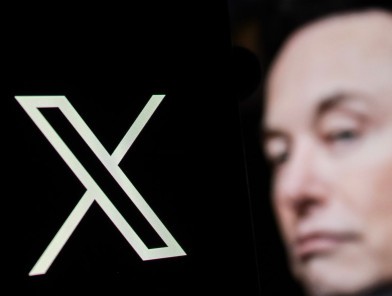The Rise of Financial Gatekeeping
In the digital age, payment processors like Visa and Mastercard have grown from mere transaction facilitators into powerful gatekeepers. While they serve as the backbone of modern e-commerce, their influence now stretches into realms they were never meant to govern namely, culture, speech, and personal freedoms.
A recent petition on Change.org calls on Visa and Mastercard to stop "policing" legal adult content specifically, fictional content such as books, games, and art. The concern? These companies are increasingly influenced by activist groups like Australia's Collective Shout, which campaigns against certain themes in adult-oriented media, pressuring platforms and now, payment providers, to restrict or remove them entirely.
But should two credit card companies really have the power to determine what content you can legally buy or enjoy?
When Payment Providers Become Moral Enforcers
Beyond Transactions: An Alarming Trend
Visa and Mastercard are not content publishers. They are not moral authorities. Yet, by threatening to withhold services from platforms hosting content they deem “inappropriate,” they are effectively dictating which ideas and artistic expressions are permissible. This behavior sets a dangerous precedent: it allows unaccountable private corporations to shape the limits of legality and free expression based on subjective preferences often guided by small but vocal activist groups.
The Case of Collective Shout and Steam
One of the catalysts for the current backlash is the Australian group Collective Shout, which pushed Steam, a major gaming platform, to remove hundreds of fictional games they claimed “promote rape and incest.” While their campaign appears rooted in protecting human rights, their actions have bled into fiction and expression. Some of the games taken down were neither pornographic nor exploitative but simply depicted controversial themes in storytelling themes often used to explore trauma, morality, or psychological depth.
Worse still, games with LGBTQ+ narratives and even mainstream titles like Detroit: Become Human and Grand Theft Auto V have allegedly been targeted under this wide net of censorship.
Let Adults Decide for Themselves
The petition opposing Visa and Mastercard’s overreach says it best:
“Adults are capable of choosing what they want to watch, read, or play. If someone doesn’t like a certain type of entertainment, the solution is simple: walk away. Nobody is forced to engage with content they find offensive but they have no right to dictate what others are allowed to enjoy, especially when it’s within the bounds of the law.”
Censorship in the name of “morality” often starts small, but history shows it rarely ends there. Today it’s adult fiction; tomorrow it could be political speech, journalism, or art. Payment processors must not be cultural regulators.
Hypocrisy and Inconsistency
Critics have rightly pointed out the hypocrisy of Visa and Mastercard. While they crack down on fictional depictions that offend certain sensibilities, they continue to facilitate transactions on platforms with real-life reports of abuse, hate speech, or fraud often turning a blind eye when profit is on the line.
Why the double standard? It’s hard not to wonder if these decisions are less about ethics and more about public image management in the face of activist pressure.
Free Markets Must Remain Free
At its core, capitalism rests on the idea of consumer choice. If legal products or content exist, and there is demand for them, then individuals should be free to make those purchases without corporate interference. When payment processors start picking sides in cultural debates, they tilt the marketplace and disenfranchise entire creative sectors.
Imagine if bookstores were denied the ability to sell certain novels. Or if streaming platforms couldn't accept payments for movies that challenged conservative values. Fiction is not reality and people are smart enough to know the difference.
Creators at Risk
Beyond consumers, this overreach threatens independent creators, writers, game developers, and artists whose livelihoods depend on direct sales. If they can’t process payments simply because of fictional subject matter, they are being financially silenced.
It’s no longer just about one game or one book it’s about who gets to exist in the marketplace. And the answer should never be “only those who offend no one.”
Media Backlash and Google Pressure
This isn't just about Visa and Mastercard. Media companies like Vice's Waypoint division have also come under pressure. As journalist Ana Valens revealed in a recent Twitch stream, Vice’s owners demanded takedowns of content about sexuality and politics over fears of Google SEO penalties.
The result? Writers resigned, articles were pulled, and meaningful journalism vanished all because tech overlords and financial giants were afraid of offending algorithms or advocacy groups.
This Isn’t Just About Games It’s About Power
And when YouTubers like Cr1TiKaL (MoistCr1TiKaL) speak out, it's because the issue transcends gaming. In his words:
“Collective Shout has some kind of death grip on these payment processors. They’re squeezing the piss out of their balls… It’s unreal how much power they have.”
Crass as it sounds, the point is clear: no activist group regardless of ideology should be able to manipulate financial infrastructure to silence legal content.
What You Can Do: Sign the Petition
The fight isn’t over. If you believe that payment processors should process payments, not police culture, then make your voice heard.
👉 Sign the petition here to tell Mastercard and Visa:
Let adults choose. Let creators create. Stay out of legal content.
Cultural Freedom Is Not a Credit Card Perk
This debate is not about whether one agrees with adult content or controversial games. It’s about who decides what you can access you or a faceless committee at a credit card company?
Visa and Mastercard were never elected to make cultural decisions. Their job is to process payments, not push moral agendas. It’s time they remember that.
Let’s defend a world where freedom, not fear, guides what we buy, what we create, and what we choose to explore.













